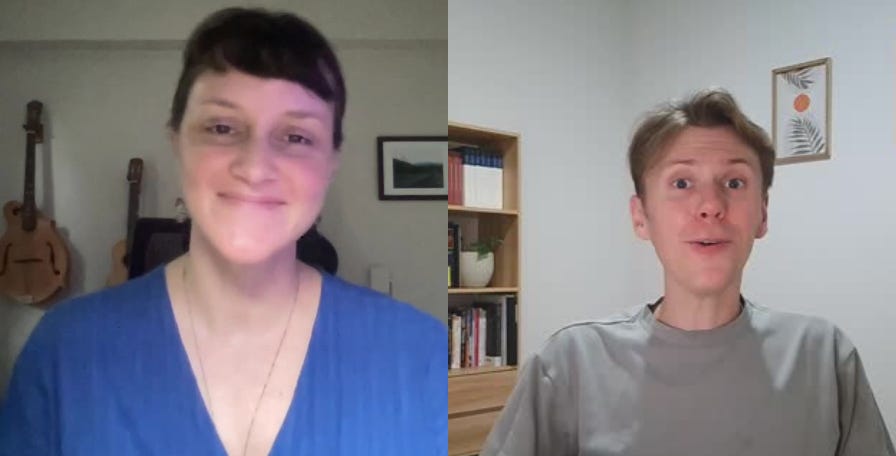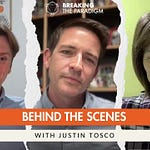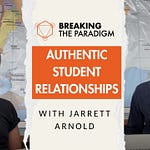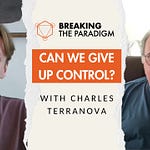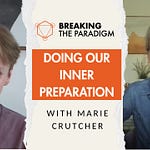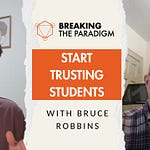If freedom is our highest democratic value, why don't we give young people freedom in schools?
Ellen Roche, my latest guest on Breaking the Paradigm, brings a unique neuroscience perspective to this question.
Her research reveals something that should shake us all: we arrive in this world with agency already intact. Babies aren't passive sponges; they're active meaning-makers from day one. So what does it say about educational systems designed primarily for compliance and control?
We're living through what Ellen calls "yet another inflection point in culture wars." Schools are battlegrounds. Parents are suspicious. Teachers are leaving in droves. Meanwhile, we keep using the wrong tools to solve our problems: more testing to close achievement gaps, more control to create safety, more compliance to prepare kids for "the real world."
But what if we've got it backwards? What if the path forward isn't through more authoritarian systems, but through environments that actually honor how humans develop?
Ellen's work in developmental neuroscience offers a different lens. She's studying how we grow and develop in relationships, how our earliest experiences shape our capacity for solidarity and resistance, and why trust- not control- might be democracy's best hope.
We also dive into why progressive educators keep falling into the same trap: making economic arguments for better education. Early childhood gets funded because of "return on investment." Play-based learning survives because it supposedly creates better workers.
Ellen argues this is a dead end that leaves us vulnerable every time the economic winds shift. But if not economics, then what? How do we make the case for education that honors children's humanity without constantly having to prove its productivity value?
The question Ellen leaves us with is profound: Do we have the courage to trust decades of human development research, or will we keep building systems that snuff the humanity out of our educational spaces?
Listen to find out how the neuroscience of early childhood development connects to the future of American democracy- and what it means for anyone who works with young people.
Want to learn more about Trust for Learning's work? Check them out at trustforlearning.org.
Want to Deepen Your Paradigm Breaking Practice?
After two years of exposing the education status quo, we're going deeper.
Provocations, our new publication, brings together the most innovative global minds—the educators, rebels, and visionaries who refuse to accept that "this is just how school works."
Each issue reveals the hidden patterns keeping millions trapped in outdated systems, and the proven strategies already transforming communities worldwide.
This isn't another academic journal. It's the playbook for parents, teachers, and leaders ready to break free from an education system designed for a world that no longer exists.
Available exclusively to Breaking the Paradigm subscribers.
Breaking the Paradigm is a division of Developing Education, which is on a mission to transform education globally to foster human development and flourishing for all people.
First Intention: Curriculum and pedagogy support for Montessori adolescent practitioners, specifically with math and language across the prepared environment.
The Enlightened Educator Project: Supporting educators with mindfulness and resiliency through professional development and downloadable resources.




